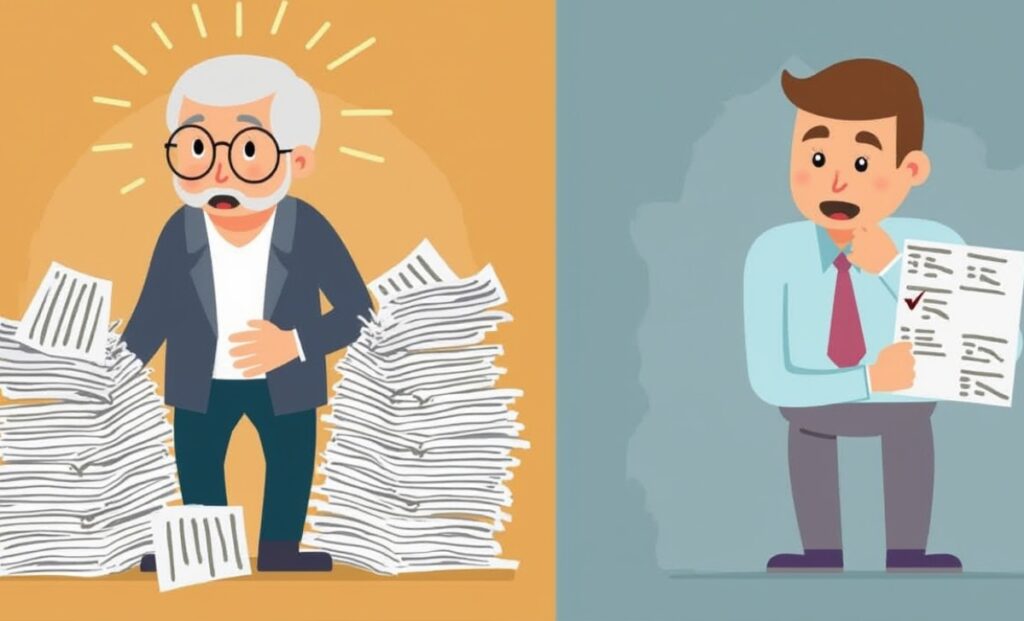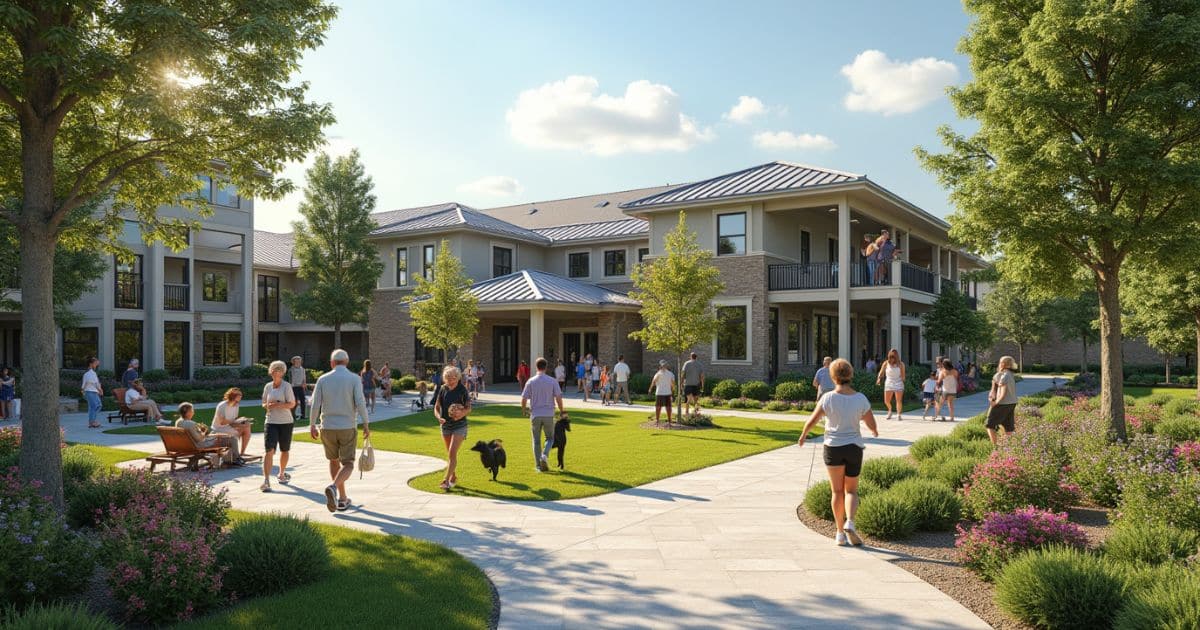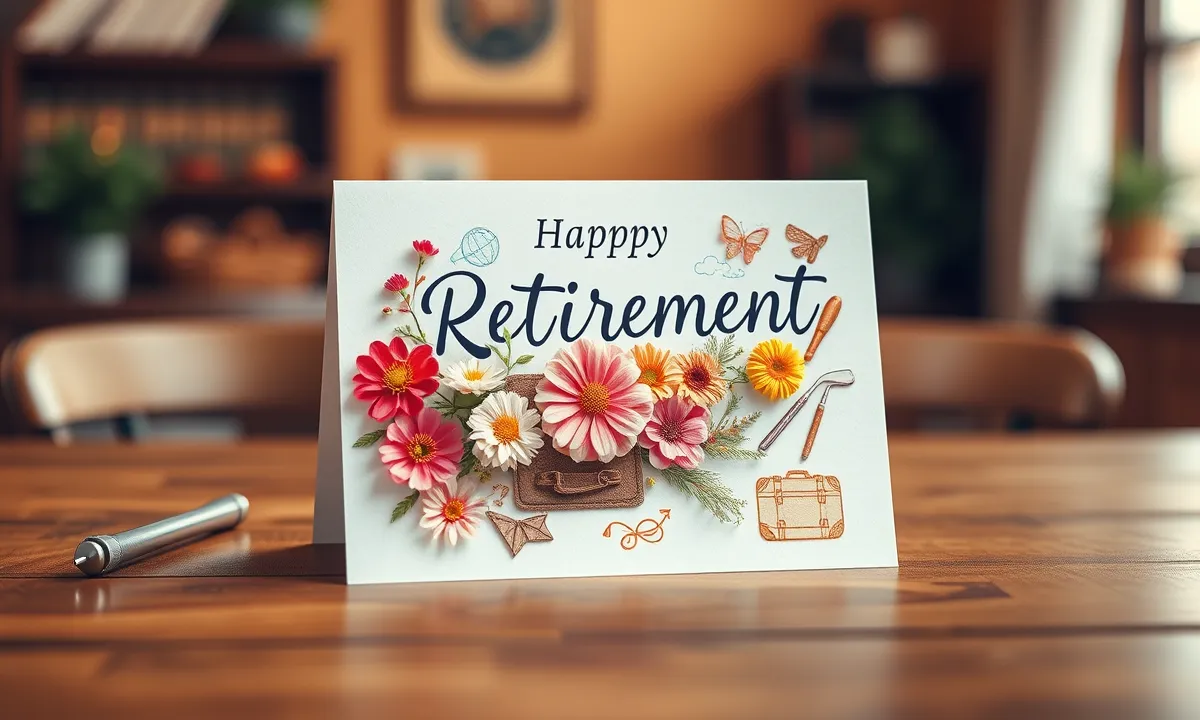Retirement is a major life milestone—are you ready for it? Whether you’re just starting to consider your options or are well on your way to planning, understanding the steps for “leave preparatory to retirement” can make a significant difference in your future financial security and overall peace of mind. Retirement is more than just an end to your working days; it’s the start of a new chapter full of opportunities, but it requires careful planning to ensure it’s everything you’ve dreamed of.
Have you thought about how your finances will hold up when the paychecks stop? Do you know which steps to take to secure your healthcare and plan your lifestyle after leaving the workforce? These are all essential aspects of a well-prepared retirement plan. In this guide, we will walk through the key actions you need to take to get financially and mentally ready, allowing you to leave your job with confidence and excitement for the future ahead.
This isn’t just about crunching numbers—it’s about setting yourself up for a fulfilling post-retirement life. Let’s dive in and explore how you can make the transition as smooth and enjoyable as possible.
Key Takeaways
- Leave preparatory to retirement (LPR) offers a valuable period for employees to prepare for a smooth transition into retirement.
- LPR allows individuals to plan their finances, ensuring they have the necessary savings and pension plans in place before fully retiring.
- Maximizing LPR benefits includes using this time for personal growth, such as skill development, health improvements, and exploring new hobbies.
- Proper legal and healthcare planning during LPR is crucial to protect one’s assets and maintain well-being in retirement.
- Avoiding common mistakes like neglecting financial planning, health, and social connections ensures a confident and successful retirement experience.
Understanding Leave Preparatory to Retirement (LPR)

Leave Preparatory to Retirement (LPR) might sound complex, but it’s an invaluable period designed to help you transition smoothly into retirement. So, what exactly is LPR, and how can it work to your advantage? Simply put, LPR is a designated leave period granted to employees approaching retirement age, allowing them to prepare physically, financially, and mentally for the next phase of their life. If you’re contemplating LPR, here’s everything you need to know about it and how to make the most of it.
What Is LPR and How Does It Work?
LPR allows eligible employees to take an extended leave period before their official retirement date, often with partial or full benefits still intact. But how does it fit into your retirement plan? This leave offers you time to:
- Adjust to the upcoming lifestyle changes without the immediate shock of full retirement.
- Take stock of your financial situation, ensuring you have the necessary savings and plans in place.
- Focus on health and wellness, using the time to develop habits that will serve you well in retirement.
By understanding how LPR works and how you can benefit from it, you gain the upper hand in creating a retirement plan that aligns with your needs and goals.
Eligibility Criteria for LPR
One of the first things you’ll need to verify is your eligibility for LPR. Each employer or organization may have different requirements, so it’s important to:
- Check your company’s retirement policies. Does your employer offer LPR as part of their retirement package?
- Confirm your years of service. Some companies may require a minimum number of years before you qualify for LPR.
- Determine your age eligibility. Typically, LPR is offered to those approaching the official retirement age.
Knowing these criteria ensures that you’re not caught off guard when planning for this crucial period. It’s also a good idea to speak directly with your HR department to get the most accurate and personalized information.
Benefits of Taking LPR Before Retirement
Why should you even consider LPR? The advantages go beyond just having some time off:
- Time to Plan: LPR gives you the opportunity to organize your finances, healthcare options, and even your post-retirement lifestyle without the pressure of a full-time job.
- Health Focus: It allows you to prioritize your health, whether that means scheduling overdue medical checkups or starting a fitness routine that will keep you active in retirement.
- Personal Growth: You can use this time to explore hobbies, take up new skills, or engage in volunteer activities that give you a sense of purpose and fulfillment beyond work.
Think of LPR as a practice run for retirement—one where you get to test out different aspects of retired life while still having the safety net of employment.
Common Misconceptions About LPR
It’s not uncommon for people to misunderstand what LPR is and how it can be utilized. Here are a few myths debunked:
- “LPR is just a long vacation.”
While LPR does offer you extended time off, its purpose goes far beyond a mere break. It’s an opportunity to prepare for the future thoughtfully. - “Only senior executives are eligible for LPR.”
LPR is not restricted to top-level management. Many companies offer it to various employees, provided they meet the eligibility criteria. - “LPR doesn’t benefit my retirement planning.”
The truth is, LPR can be a game-changer in your retirement strategy, giving you the space to make necessary adjustments and plan effectively.
By understanding these points, you can approach LPR with clarity and a strategic mindset, making sure it’s an integral part of your retirement preparation.
Leave Preparatory to Retirement is more than just an employee benefit; it’s a chance to set the foundation for a fulfilling, well-prepared retirement. Embrace this period as a stepping stone to a new chapter of growth, discovery, and health.
Evaluating Your Financial Situation

Planning for leave preparatory to retirement (LPR) is not just about enjoying time off—it’s a crucial opportunity to get your finances in order. How confident are you in your financial readiness for retirement? Taking the time now to evaluate your financial situation can help you approach the future with clarity and confidence. Let’s explore how to assess your savings, estimate retirement expenses, and create a sustainable budget.
1. Assessing Your Current Savings and Pension Plans
One of the first steps in financial planning during LPR is evaluating your current savings and pension plans. Do you know exactly what you have set aside for retirement? Here’s how to get a clear picture:
- Review Your Retirement Accounts: Check your 401(k), IRA, and any other retirement savings accounts. Are they performing as expected, and are they aligned with your retirement goals?
- Calculate Your Pension Benefits: If you have a pension plan, determine how much you’ll receive monthly once you retire. Does this amount cover your expected living expenses?
- Include Additional Assets: Don’t forget about any other assets like real estate, stocks, or bonds. These can significantly impact your financial security in retirement.
Knowing where you stand financially allows you to make informed decisions during LPR, ensuring you’re on track for a secure retirement.
2. Estimating Your Retirement Expenses
It’s easy to overlook the expenses that come with retirement. Do you have a realistic understanding of what you’ll need to maintain your lifestyle? Here’s what to consider:
- Basic Living Costs: Calculate your monthly expenses for housing, utilities, groceries, and transportation. These will likely remain consistent even after you retire.
- Healthcare Costs: Healthcare expenses often increase with age. Research insurance plans, Medicare options, and potential out-of-pocket costs to get a clear estimate.
- Leisure and Travel Plans: Will you be traveling or taking up new hobbies? Make sure to budget for these activities to enjoy your retirement fully.
- Emergency Fund: Set aside a portion of your savings as an emergency fund to cover unexpected expenses like home repairs or medical bills.
By estimating these costs, you can build a budget that’s not only realistic but also flexible enough to accommodate any changes that may arise during retirement.
3. Creating a Budget for LPR Duration
A well-structured budget during your LPR period helps you manage your resources wisely while transitioning to retirement. Here’s how you can build one that works for you:
- Estimate Your Income: Take into account any LPR benefits, savings withdrawals, or part-time income you might earn. Knowing your income stream helps balance your spending.
- Track Your Expenses: During LPR, keep track of your spending habits. This will give you an idea of which expenses might carry over into retirement and which you can cut back on.
- Adjust as Needed: Your budget doesn’t have to be rigid. Adjust it based on your actual expenses, and be open to making changes as you move closer to full retirement.
- Include Savings for Long-Term Goals: If you plan to travel, invest, or make significant purchases in retirement, make sure to save specifically for these goals during LPR.
By budgeting strategically, you can maximize your leave period and enter retirement with peace of mind.
4. Seeking Professional Financial Advice
Navigating the financial complexities of LPR can be overwhelming. Why not seek expert advice to make the process smoother? Financial planners can provide tailored recommendations, ensuring your finances are well-optimized for retirement. Here’s how they can help:
- Reviewing Investment Portfolios: A financial advisor can evaluate your investments and suggest strategies for growth or risk management, depending on your retirement timeline.
- Tax Planning: Tax implications are a major consideration during LPR and retirement. Professional advice can help you minimize tax burdens, especially when withdrawing from retirement accounts.
- Long-Term Care Planning: Planning for potential long-term care is essential. An advisor can guide you on the best insurance options or strategies to protect your assets.
Seeking professional guidance not only saves time but also provides the confidence you need when making big financial decisions during LPR.
Evaluating your financial situation might feel daunting, but taking these steps ensures that you make the most out of your LPR period. By understanding your savings, estimating costs, budgeting smartly, and seeking professional advice, you’ll be well-prepared for the exciting chapter ahead.
Maximizing LPR Benefits
Taking leave preparatory to retirement (LPR) is more than just a break from work; it’s a golden opportunity to set yourself up for a fulfilling and successful retirement. But how can you make the most out of this time? It’s about balancing preparation with personal growth, ensuring you enter retirement not only financially ready but also mentally and physically rejuvenated. Let’s dive into how you can maximize the benefits of your LPR period.
How to Use LPR for Personal and Professional Development
LPR can be an excellent time for growth, whether it’s brushing up on skills or exploring new ones. Think about it—what do you want to achieve during this period?
- Professional Courses or Certifications: Have you ever wanted to gain a new certification or complete a course related to your field or hobby? Taking LPR allows you to invest in personal and professional development without the pressure of a full-time job.
- Developing New Skills: Whether it’s learning a new language, mastering digital tools, or enhancing your cooking skills, LPR gives you the time to expand your skill set.
- Networking Opportunities: Utilize this period to attend seminars, workshops, or online events that allow you to connect with like-minded individuals and build a network that could be beneficial even in retirement.
These actions not only keep your mind active but also prepare you for potential freelance or part-time opportunities, should you wish to pursue them post-retirement.
Leveraging LPR for Health and Wellness Preparation
Retirement should be a time to enjoy life, but it’s hard to do that without a focus on health. How can you make wellness a priority during your LPR?
- Establish a Fitness Routine: Use your LPR period to start a sustainable exercise routine that suits your body and lifestyle. Whether it’s yoga, swimming, or walking, find something you enjoy and can maintain in retirement.
- Schedule Medical Checkups: Make sure you’re up-to-date with your medical appointments. Now is the perfect time to address any health concerns and set a plan for maintaining your health long-term.
- Explore Mindfulness Practices: Retirement can bring a lot of changes, and practicing mindfulness or meditation during LPR can help you manage stress and maintain a positive outlook.
By focusing on health and wellness during LPR, you’re setting the foundation for a vibrant and energetic retirement, making it easier to enjoy your newfound freedom.
Exploring Volunteer or Freelance Opportunities During LPR
LPR can also be a time to give back or explore new avenues for income. Have you thought about ways to make your leave more meaningful?
- Volunteering: Many find fulfillment in volunteering for causes they are passionate about. Whether it’s local community work or online mentoring, these experiences can provide a sense of purpose and connection.
- Freelancing: If you have skills you’d like to offer, freelancing is a flexible option that allows you to earn while managing your time. Writing, consulting, or teaching online are great options that many retirees pursue.
- Starting a Small Business: Have a business idea you’ve been sitting on for years? LPR might be the right time to explore it on a small scale before fully committing in retirement.
These activities not only provide satisfaction and income but also keep you socially and intellectually active, which is vital for overall well-being.
Using LPR Time for Family and Personal Projects
Are there family commitments or personal projects you’ve been putting off due to work obligations? LPR provides the freedom to focus on these areas:
- Spending Quality Time with Family: LPR is the ideal time to reconnect with loved ones. Whether it’s spending more time with your spouse, grandchildren, or friends, these moments create memories and strengthen bonds before your full retirement.
- Home Improvement Projects: Have a renovation or garden project in mind? This period allows you to work on your home, making it the ideal space for your retirement years.
- Hobbies and Passion Projects: Finally, LPR offers the perfect window to dive into hobbies or passion projects that bring you joy, like painting, writing, or traveling. These pursuits not only fill your time but also add a sense of achievement and fulfillment.
By strategically using your LPR time for personal and family goals, you’re ensuring a smooth transition into a retirement filled with balance, purpose, and joy.
Maximizing the benefits of LPR is all about being proactive and intentional. Whether it’s focusing on your health, learning new skills, exploring freelance work, or deepening family connections, each step taken during this period sets the stage for a satisfying and well-rounded retirement.
Preparing for the Transition to Full Retirement

As you approach the end of your leave preparatory to retirement (LPR), it’s crucial to plan for the transition into full retirement. But how can you ensure that your journey from a structured work environment to a more relaxed lifestyle is smooth and enjoyable? The key lies in preparing ahead, both practically and mentally. Let’s explore some of the steps you can take to set yourself up for a successful retirement.
Organizing Legal and Estate Planning Documents
One of the most important aspects of preparing for retirement is ensuring that your legal and estate affairs are in order. Do you have everything you need to secure your future and that of your loved ones?
- Update Your Will: Make sure your will reflects your current wishes, including any recent changes in assets, beneficiaries, or family situations.
- Create a Power of Attorney: Establishing a power of attorney ensures that someone you trust can make important decisions on your behalf if you’re unable to do so.
- Review Your Beneficiaries: Double-check that the beneficiaries on your retirement accounts, insurance policies, and other assets are up-to-date and correctly assigned.
- Organize Important Documents: Keep all essential documents, such as birth certificates, marriage licenses, insurance policies, and financial records, in a secure and accessible location.
Getting your legal and estate plans in place provides peace of mind, knowing that your affairs are well-organized and your loved ones are protected.
Reviewing Healthcare and Insurance Options
Healthcare becomes increasingly important as you transition into retirement. Are you confident that your current healthcare plans will cover your needs? It’s vital to evaluate your options and ensure you’re adequately protected.
- Explore Medicare and Supplemental Insurance: If you’re eligible for Medicare, review the coverage options available to you. You may also want to look into supplemental insurance to fill any gaps that Medicare doesn’t cover.
- Consider Long-Term Care Insurance: This type of insurance can be a wise investment, providing coverage for nursing home care, assisted living, or home healthcare if needed.
- Schedule Preventive Health Screenings: Use your LPR time to complete any necessary health checkups and preventive screenings. Knowing your health status can help you plan better for the years ahead.
By carefully reviewing and adjusting your healthcare plans, you’re setting yourself up for a healthier and more secure retirement.
Developing a Post-Retirement Routine and Hobbies
Retirement brings newfound freedom, but without a structured plan, it’s easy to feel unproductive or bored. Have you thought about how you want to spend your days once you retire?
- Establish a Daily Routine: Even if it’s as simple as morning walks, reading, and a set time for meals, having a consistent routine helps create stability and a sense of purpose.
- Explore Hobbies You’ve Always Wanted to Try: Retirement is the perfect time to dive into activities you may have put off—gardening, painting, playing an instrument, or even traveling. Find hobbies that bring you joy and satisfaction.
- Engage in Social Activities: Staying socially active is important for mental and emotional well-being. Consider joining clubs, attending community events, or participating in group activities that allow you to meet new people and maintain a vibrant social life.
Creating a balanced routine and investing in hobbies not only enhances your quality of life but also provides a sense of fulfillment and achievement during your retirement years.
Adjusting to Life Without a Full-Time Job
The shift from a busy work life to a more leisurely pace can be challenging. How can you adapt to this change and find meaning beyond your career?
- Reframe Your Perspective: View retirement as an opportunity for growth rather than an end to productivity. It’s a chance to redefine what fulfillment and success mean to you.
- Explore Volunteer Opportunities: Volunteering is a great way to use your skills and experience in a meaningful way. Find causes that align with your values and get involved, creating a sense of purpose and connection.
- Plan for Milestones and Goals: Set short-term and long-term goals for your retirement, such as learning a new language, visiting specific destinations, or completing creative projects. Having goals helps you maintain motivation and excitement.
Transitioning to full retirement doesn’t mean losing your sense of purpose; it’s about embracing a new chapter where you have the freedom to shape your life in ways that are most meaningful to you.
By preparing thoroughly for your transition to full retirement, you’re setting yourself up for a fulfilling and enriched retirement life. Taking time to organize your legal documents, review healthcare options, establish routines, and set personal goals ensures you’ll enter this phase with confidence, excitement, and readiness for whatever comes your way.
Common Mistakes to Avoid During LPR

Leave preparatory to retirement (LPR) is a valuable period that allows you to plan and prepare for retirement, but it’s not without its challenges. Many people make mistakes during this time that can affect their overall retirement experience. Are you making the most of your LPR period, or are you falling into some common traps? Let’s explore the pitfalls you should avoid to ensure you maximize your benefits and enter retirement confidently.
1. Not Planning Financially for Extended LPR Periods
One of the biggest mistakes people make during LPR is underestimating the financial implications of an extended leave period. Have you set up a plan to manage your finances while on leave?
- Budget Carefully: An extended LPR period can strain your finances if you haven’t budgeted properly. Make sure to assess your income sources, whether it’s savings, partial benefits, or other streams, and compare them against your expenses.
- Consider Unexpected Costs: Life can be unpredictable, and unexpected expenses may arise. Whether it’s healthcare, home repairs, or other emergencies, having a contingency plan or emergency fund is essential.
- Avoid Draining Retirement Savings Early: It’s tempting to dip into your retirement savings to support yourself during LPR, but this can have long-term consequences. Instead, explore alternative options like part-time work or consulting roles to supplement your income.
Planning your finances effectively during LPR helps you avoid potential shortfalls and ensures a smooth transition into retirement without financial stress.
2. Failing to Explore All LPR Options and Benefits
Many employees jump into LPR without fully understanding all the options and benefits available. Have you done your research to make sure you’re taking advantage of everything offered?
- Consult with HR: Your company’s human resources department can provide valuable information about available benefits, including healthcare options, flexible schedules, or professional development opportunities. Don’t hesitate to ask questions and explore all possibilities.
- Understand Pension and Benefit Adjustments: Certain LPR programs may affect your pension or retirement benefits. Clarify how your leave period impacts these aspects to avoid any surprises when you fully retire.
- Take Advantage of Skill Development Programs: Some companies offer courses or training sessions for employees on LPR. These programs can help you gain new skills that could be valuable for freelance work or post-retirement activities.
Being proactive and informed about your LPR options ensures you’re making the most of this time, allowing you to benefit from everything available.
3. Ignoring the Importance of Health and Wellness Preparation
It’s easy to focus solely on financial planning and overlook the importance of physical and mental well-being during LPR. Are you taking the necessary steps to prioritize your health?
- Neglecting Regular Checkups: It’s vital to stay on top of medical appointments and preventive care. Use your LPR time to schedule and complete any necessary checkups, ensuring you enter retirement in the best possible health.
- Skipping Physical Activity: A sedentary lifestyle during LPR can set a negative precedent for retirement. Incorporate regular exercise into your daily routine, whether it’s walking, yoga, or strength training, to keep your body active and healthy.
- Overlooking Mental Health: Retirement can bring a sense of loss or uncertainty. Engaging in mindfulness practices, therapy, or community activities can help you manage stress and maintain a positive mindset.
Prioritizing your health during LPR is not just about physical fitness; it’s about preparing yourself holistically for the years ahead, ensuring you have the energy and vitality to enjoy retirement fully.
4. Neglecting Social Connections and Network Building
The transition from work life to retirement can sometimes feel isolating if you don’t maintain and build social connections. Have you considered how to stay socially active and engaged during LPR?
- Reconnect with Colleagues: Before you fully retire, take the time to strengthen relationships with colleagues. These connections can become part of your post-retirement social network or even lead to consulting opportunities.
- Join Clubs or Groups: Exploring new hobbies or interests through clubs and groups can help you build a new circle of friends outside of work. It’s a great way to ensure you stay connected and socially active.
- Volunteer or Mentor: Engaging in volunteer work or mentoring young professionals keeps you connected to the community and allows you to contribute your skills meaningfully.
By investing in your social life during LPR, you lay the groundwork for a fulfilling and socially enriched retirement experience, reducing the risk of isolation and loneliness.
Avoiding these common mistakes during your LPR period ensures that you maximize the time and opportunities available. By planning your finances carefully, understanding your options, prioritizing health, and maintaining social connections, you’ll set the stage for a confident and successful retirement.
Conclusion
Embarking on your leave preparatory to retirement (LPR) journey is a significant step toward a fulfilling retirement. It’s a chance to align your finances, prioritize your health, and set a solid foundation for the years ahead. But as you move through this period, remember that the choices you make now will shape your future. Have you fully explored the benefits of LPR, planned your financial strategy, and taken steps to ensure your well-being? If not, it’s never too late to adjust your approach.
Think of LPR as a unique opportunity to test the waters, refine your retirement plans, and discover what truly brings you joy. Whether it’s engaging in new hobbies, volunteering, or learning new skills, every action you take during this time prepares you for a vibrant and purposeful life post-retirement.
So, how will you make the most of your LPR? Will you seize this time to invest in yourself and your future? By proactively planning and embracing this transitional phase, you set the stage for a retirement that’s not only secure but also filled with excitement and new possibilities.
Remember, your retirement is yours to design—make it one that fulfills your aspirations, ensures your well-being, and brings lasting satisfaction.
FAQ
What is Leave Preparatory to Retirement (LPR)?
LPR is a designated leave period that allows employees nearing retirement to prepare for the transition. It offers time to organize finances, plan for health and wellness, and explore new activities before retiring fully.
Who is eligible for LPR?
Eligibility for LPR varies by employer and organization. Generally, it is offered to employees who are close to the official retirement age and have met certain service requirements. It’s essential to check with your HR department for specific criteria.
What are the benefits of taking LPR?
LPR offers several benefits, including time for financial planning, health assessments, skill development, and personal growth. It provides a smooth transition into retirement, helping individuals adjust to the upcoming lifestyle changes without the immediate pressure of full retirement.
How can I maximize the benefits of LPR?
Maximizing LPR involves proactive planning, such as evaluating your financial situation, investing in skill development, focusing on health, and exploring volunteer or freelance opportunities. Using this period strategically can lead to a more fulfilling retirement experience.
Can I continue working part-time during LPR?
Many employers allow employees to work part-time or take on freelance roles during LPR. It’s important to confirm with your organization if this is an option and understand how it may impact your benefits or pension.
What financial planning should I do during LPR?
During LPR, you should review your savings, pensions, and other assets. It’s essential to create a realistic budget, plan for healthcare costs, and consult with a financial advisor to optimize your retirement funds and investments.
Does LPR affect my retirement benefits or pension?
Depending on your company’s policies, LPR may influence your retirement benefits. Some programs may provide partial benefits, while others might adjust your pension based on the length of your leave. It’s crucial to clarify these details with HR.
What should I focus on in terms of health and wellness during LPR?
LPR is an ideal time to establish a sustainable fitness routine, schedule medical checkups, and engage in mindfulness practices. These steps help you maintain physical and mental health, ensuring you’re well-prepared for retirement.
What are the common mistakes to avoid during LPR?
Common mistakes include inadequate financial planning, ignoring health preparation, and neglecting social connections. It’s important to be proactive, seek professional advice, and use LPR as an opportunity to set a solid foundation for your retirement.
How can I stay socially active during LPR?
Staying socially active during LPR is crucial. You can reconnect with colleagues, join clubs, volunteer, or explore new hobbies. These activities help maintain a sense of purpose and connection, ensuring a fulfilling and engaged retirement life.













